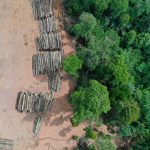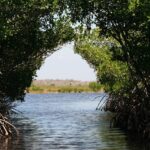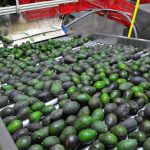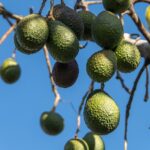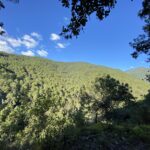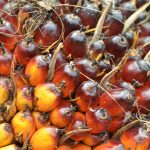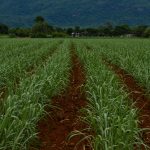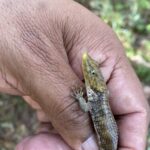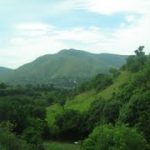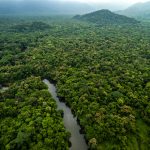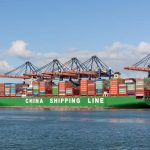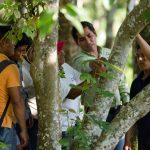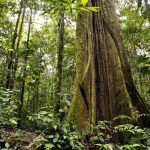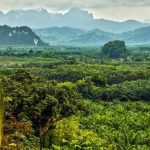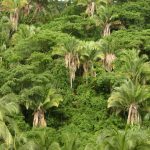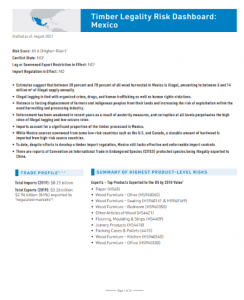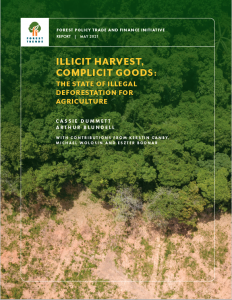
- Estimates suggest that between 30 percent and 70 percent of all wood harvested in Mexico is illegal, amounting to between 5 and 14 million m3 of illegal supply annually.
- Illegal logging is tied with organized crime, drugs, and human trafficking as well as human rights violations.
- Violence is forcing displacement of farmers and indigenous peoples from their lands and increasing the risk of exploitation within the wood harvesting and processing industry.
- Enforcement has been weakened in recent years as a result of austerity measures, and corruption at all levels perpetuates the high rates of illegal logging and low seizure rates.
- Imports account for a significant proportion of the timber processed in Mexico.
- While Mexico sources sawnwood from some low-risk countries such as the U.S. and Canada, a sizeable amount of hardwood is imported from high-risk source countries.
- To date, despite efforts to develop a timber import regulation, Mexico still lacks effective and enforceable import controls.
- There are reports of Convention on International Trade in Endangered Species (CITES) protected species being illegally exported to China.
Read more by downloading the Mexico Timber Legality Risk Dashboard here.
The ITTO has released the 2025 scores for its Global Timber Index. The GTI s a survey in nine pilot countries that covers timber harvesting, trade, and manufacturing, including production, orders, imports and exports, employees, inventory, raw material prices, and other business indicators. A GTI index reading above 50 per cent indicates the industry prosperity is generally expanding, while below 50 per cent indicates that it is generally declining.
Other news in the report includes:
- Thailand’s Commerce Ministry announced the simplification of export procedures for the export of Thai wooden products. Except for Siamese Rosewood, which remains banned from export, companies are no longer required to obtain a permit to export these wooden products.
- On sustainable forest management, the report said Brazil’s National Biodiversity Commission established national biodiversity targets for the period 2025-2030, including a target of achieving zero deforestation in the country.
Real estate developments and pig farms operating in Yucatán without environmental permits will be demolished, the Federal Attorney for Environmental Protection (Profepa) warned. The agency’s head, Mariana Boy, noted that many companies prefer to pay fines rather than regularize their activities, which has led to a disorderly expansion of construction in coastal zones and protected areas. Nationally, Profepa has begun to implement stricter measures against environmental destruction caused by real estate projects.
In addition to real estate developments, pig farms are also in the spotlight, as many operate without complying with environmental requirements. Mariana Boy acknowledged that this problem is not new and that some buildings lack an Environmental Impact Statement (EIS), making them priority cases for inspection and sanctions.
Following the recent destruction of dunes and mangroves in Sisal, residents of Chabihau have now reported new illegal logging of mangroves on the coastal strip that connects with Santa Clara. According to residents, the affected area is being deforested without federal permits, putting the region’s biodiversity and ecological balance at risk.
The complainants point out that the logging is being driven by private entrepreneurs, who intend to use the area to build a lookout point and a restaurant. However, so far, there is no evidence that they have the necessary environmental impact studies or the corresponding authorizations from the Ministry of Environment and Natural Resources (Semarnat) or the Federal Attorney’s Office for Environmental Protection (Profepa).
Latin America consistently has the most documented murders of land and environmental defenders – 85% of cases in 2023. Lethal attacks against defenders were concentrated in four key countries that accounted for more than 70% of murders: Brazil, Colombia, Honduras and Mexico. Colombia is the world’s deadliest country for land and environmental defenders, with 79 murdered in 2023 – 40% of all reported cases. With the same number of murders as Mexico but less than a tenth of population, Honduras emerged as the country with the most killings per capita in 2023.
The Michoacán state government has announced a new best practices certification for avocado producers, which seeks to reduce deforestation using satellite surveillance.
The voluntary certification, called Pro-Forest Avocado, aims to guarantee that avocados come from registered farms that don’t engage in environmentally destructive practices like illegal logging.
Illegal practices in Mexico’s avocado heartland, which is expanding rapidly to feed growing demand in the United States, come at the expense of nearby forests, according to Michoacan government officials.
The environmental damage has prompted U.S. nonprofit the Organic Consumers Association to file lawsuits against unlisted West Pak Avocado Inc and another major avocado importer Fresh Del Monte Produce Inc FDP.N for labeling Mexican avocados as “sustainable” or “responsibly sourced.”
The country supplies around 80% of the avocados eaten in the US but they have now been branded ‘blood diamonds’.
The avocado’s wholesome image is being tarnished by the arson, threats and killings involved in its production in Michoacán, Mexico which supplies most of the country’s avocados. Internal US government reports warned that the approval of the Mexican state as a producer “would likely increase deforestation” in the area. This has proved correct, as a “combination of interests”, including “criminal gangs, landowners, corrupt local officials and community leaders”, started clearing forests for avocado orchards, said the New York Times, in some cases “illegally seizing privately owned land”.
Criminal gangs are increasingly infiltrating legitimate business sectors such as trade, and importing more illegal products into the Netherlands, police research bureau Politie & Wetenschap has warned in its latest report.
The researchers found that the trade in avocados, plastic waste and timber are particularly prone to criminal infiltration and gangs earn money by circumventing local and international rules and regulations.
Parts of the avocado trade in Mexico, Peru, Colombia and Chile are also being taken over by gangs, the report said. Extortion, theft from local avocado farmers, and illegal slash and burn practices to obtain more land to grow avocados are rife.
A 24-month project is being administered by the CEC – a joint initiative of the US, Canadian and Mexican governments – to “increase understanding and awareness of wood products; helping consumers support SFM (or Sustainable Forest Management) and contribute to the fight against illegal logging through their purchase power.”
Illegal deforestation for avocado crops points to a blood-soaked trade with the United States, involving threats, abductions and killings.
The report on which this article is based can be found CRI Mexico Report: Unholy Guacamole – Climate Rights International
For the past 11 years, Global Witness has documented and denounced waves of threats, violence and killings of land and environmental defenders across the world, and 2022 marks the beginning of our second decade documenting lethal attacks. The world has changed dramatically since we started documenting these in 2012. But one thing that has not changed is the relentlessness of the killings.
Last year, at least 177 defenders lost their lives for protecting our planet, bringing the total number of killings to 1,910 since 2012. At least 1,390 of these killings took place between the adoption of the Paris Agreement on 12 December 2015 and 31 December 2022.
New Global Witness report shows nearly 90% of all environment-linked killings in 2022 were in the region, driven by land disputes, armed conflict and extractive industries.
Colombia was found to be the deadliest country in the world, with 60 deaths in total last year – more than a third of all killings globally. These figures come despite the country’s move in October 2022 to ratify the Escazú Agreement, a legally binding regional treaty to protect environmental defenders, and is almost double the number of killings reported in the country in 2021.
Other vulnerable countries in the region where Brazil, where 34 defenders lost their lives, compared to 26 in 2021, and Mexico, although the 31 murders recorded in the country last year were a drop from 54 in 2021, when it was the country with the highest number of killings. With 14 land- and environmental-linked murders recorded, Honduras was the country with the world’s highest per-capita killings. Mexico has ratified the Escazú Agreement, while Brazil is yet to do so, having only signed the treaty at its creation in September 2018; Honduras has neither signed nor ratified the agreement.
Nestle (NESN.S) is piloting a scheme to give cash to coffee farmers who grow beans sustainably as part of its plan to halve greenhouse gas emissions in its coffee business by 2030, the food company said on Tuesday.
The cartels in Mexico have discovered new business opportunities beyond drugs. Illegal deforestation has become a massive problem – especially on the US border.
Illegal logging has been going on in the region since the 1970s. With organized crime, however, this business has taken on a new dimension in recent years. The state of Chihuahua, which borders Texas in the United States, has historically been an important corridor for drug trafficking, dominated here by the Sinaloa and Juárez cartels.
Illegal deforestation has now become an additional business and a massive problem, explains Álvaro Salgado Ramírez of the non-governmental organization Siné-Comunarr.
Almost half of the 401 murders of human rights defenders recorded in 2022 were against people involved in the defense of land and environment, according to the most recent report by the organization Front Line Defenders.
Latin America is the region with the highest number of cases of recorded violence against defenders.
The countries with the most cases are Colombia, Mexico, Brazil and Honduras.
Barclays (BARC.L) has told beef sector clients they must prevent deforestation in their South American supply chains, in a policy document seen by Reuters that toughens the bank’s stance but stops short of campaigners’ demands.
- Mexico is one of the 12 most biodiverse countries in the world, yet more than 50% of the country’s land is degraded and deforested, driven mainly by agricultural expansion, timber extraction and forest fires.
- The Mexican government’s $3.4 billion Sembrando Vida (Sowing Life) reforestation program is supposed to have planted more than 720 million trees since its inception in 2016, yet it has also been criticized for encouraging deforestation and focusing more on social rather than environmental outcomes.
- To obtain funds for Sembrando Vida, the government has been criticized for slashing 75% of funding for the national parks authority, severely limiting its ability to protect the country’s protected natural areas, which cover almost 91 million hectares (225 million acres).
- In April 2021, the Mexican Alliance for Ecosystem Restoration was launched as part of the U.N. Decade for Ecosystem Restoration and seeks to guide private and public sector restoration initiatives and drive investment in ecosystems, aiming to restore 1 million hectares (2.5 million acres) of forest by 2030.
- Every year, at least 47,770 hectares of forests and jungles are cleared to establish agricultural fields. This forest cover is equivalent to the area occupied by Cozumel, one of the largest islands in Mexico.
- Territories that were previously inhabited by forest biodiversity are now dominated by monocultures such as avocado, soybeans, cane and oil palm.
- For decades, the clearing caused by agribusiness has been advancing without obstacles in various regions of the country. The engines that encourage it are, among others, government subsidies, a growing market, ignored environmental laws and, especially, disdain for forested lands.
- When deforestation caused by oil palm was advancing in Indonesia or Malaysia, federal and state officials in Mexico did everything they could to encourage the planting of these native African palms in the surroundings of the Selva Lacandona.
- Between 2014 and 2019, at least 5,400 hectares of forests and jungles were lost due to the expansion of oil palm in Chiapas, Campeche, Tabasco and Veracruz, according to cartographic analyzes carried out by the authors of the study Oil palm cultivation in Mexico.
- At least 4,000 hectares of oil palm are found within the La Encrucijada Biosphere Reserve, a protected natural area located on the coast of Chiapas and where there has been the greatest expansion of monoculture in the last ten years.
- In the sugarcane zone of the municipality of Othón P. Blanco, the result of decades of government policies that have privileged agriculture and livestock over jungles and forests is reflected.
- Beginning in the 1970s, the federal government promoted cane cultivation in the region. There was installed the sugar mill that until today marks life in the southern zone of Quintana Roo. Although many cane fields have been established since the 1980s, this monoculture has continued to add hectares inside and outside the sugar cane zone.
- In the entire municipality of Othón P. Blanco, since 2010, 75,364 hectares were left without tree cover, which is equivalent to 109 times the area of the Chapultepec forest, located in Mexico City.
- Hopelchén is today one of the main soybean producers in the country. Occupying that place has had a very high cost for biodiversity. In 20 years, this municipality in the state of Campeche lost at least 153,809 hectares of tree cover, an area that represents three times the territory of the island of Cozumel.
- The expansion of soybeans in that region has gone hand in hand with processes of leasing and privatization of lands that were previously ejido under collective ownership, and government subsidies that benefit, above all, large producers.
- In the last seven years, the environmental authorities have not authorized any change in the use of forest land in Hopelchén, yet clearings continue and have intensified in recent years, according to satellite images.
- In Jalisco, avocado orchards spread out and monopolize the landscape: in 2010 there were about 8,400 hectares of this monoculture, by 2021 that surface tripled.
- Satellite images show what is lost with the expansion of the Persea americana monoculture: since 2019 at least 5,160 hectares ceased to be forests to become avocado orchards.
- The loss of forest cover could continue unstoppable, especially after, in July 2022, the United States government authorized the commercialization of avocados harvested in Jalisco.
The link between drug and animal trafficking in Mexico is becoming closer every day. Poachers and loggers are forced to work for the Sinaloa cartel or the Jalisco New Generation cartel (CJNG), who pay them in illegal drugs such as methamphetamine and fentanyl. China’s insatiable thirst for species such as totoaba, sea cucumber and abalone has turned animal trafficking into a lucrative business, and one Mexico’s organized crime groups want to control. Mexican cartels are now delivering these species to Chinese traders, who in return provide the chemical precursors needed to make illegal drugs.
This task has been made easier by the Mexican government’s hands-off approach to the cartels and the fact the country’s environmental authorities are desperately underfunded.
In the state of Michoacán, Mexico, the fight to protect a natural wonder is colliding with a booming avocado trade and a spiralling war for control being waged by the country’s drug cartels.
An Indigenous rights activist who campaigned against illegal logging has been killed in northern Mexico, prosecutors say, five years after his activist brother also was slain.
Wildlife trafficking from Mexico to China receives little attention, but it is growing and threatens biodiversity. Moreover, while the connections between wildlife trafficking and drug cartels are sometimes exaggerated, in Mexico, wildlife trafficking, drug trafficking, and money laundering have become intertwined. Attracted by China’s enormous appetite for wildlife products and in contact with Chinese traders supplying precursor chemicals for the production of illegal fentanyl and methamphetamine, Mexican drug cartels are increasingly muscling their way into the country’s legal and illegal wildlife trade.
A community in rural Mexico has for the past 15 years led the conservation of the forest on its communally managed land, or ejido, in a region wracked by illegal logging.
The Nueva Vaquería forestry program near Pico de Orizaba National Park has seen the community reforest nearly 500 hectares (more than 1,200 acres), in stark contrast to the deforestation unfolding inside the park and neighboring communities.
In the fir forests of Mexico, one of the world’s most dangerous countries for environmentalists, the legacy of butterfly defender Homero Gomez lives on two years after his suspected murder.
Illegal logging destroys biodiversity and the habitat of fauna and flora; It causes the contamination of water sources, erosion, landslides and climate change, affirmed the Governor of Campeche Layda Sansores with community and ejido commissioners.
There the reality that the towns of Campeche live in was reaffirmed, the state executive made a call not to allow our children’s heritage to be destroyed. “Let’s raise awareness that this is a crime!” She said.
Regular citizens have taken the fight against illegal logging into their own hands in the pine-covered mountains of western Mexico, where loggers clear entire hillsides for avocado plantations that drain local water supplies and draw drug cartels hungry for extortion money.
Criminal groups across western Mexico have increased their control of illegal logging by threatening landowners, government officials and even entire communities to ensure near-total impunity.
According to a new study by the University of Guadalajara (UDG), illegal logging is one of the fastest-growing criminal economies in Mexico, with 70 percent of wood cut down between 2017 and 2019 lacking the proper permits. In 2019, the amount of forest destroyed was equivalent to an area twice the size of Mexico City. In 2020, Mexico lost 127,770 hectares of forest, a 12 percent increase on the previous year.
A national park inside Mexico City is an illegal logging hotspot for wood buyers from all over the country.
The national park, called Cumbres del Ajusco, sits on the southern edge of the city, where cartels oversee the logging operations with local lumberjacks.
Law enforcement agencies have struggled to root out the illegal logging operations due to a lack of personnel and questionable enforcement strategies
More than 300,000 square kilometers of forested land – about 15% of Mexico’s territory – have been depleted due to illegal logging carried out by criminal groups, according to the environmental protection agency Profepa.
In a document cited by the newspaper El Universal, Profepa said there are 122 areas of forested land where severe deforestation has occurred due to “the high incidence of illegal logging related to organized crime groups.”
Click here to access the Global Illegal Logging and Associated Trade (ILAT) Risk assessment tool and to download the Forest Trends User Guide describing the functionality of the ILAT Risk Data Tool.
Click here to access the Cattle Data Tool.

